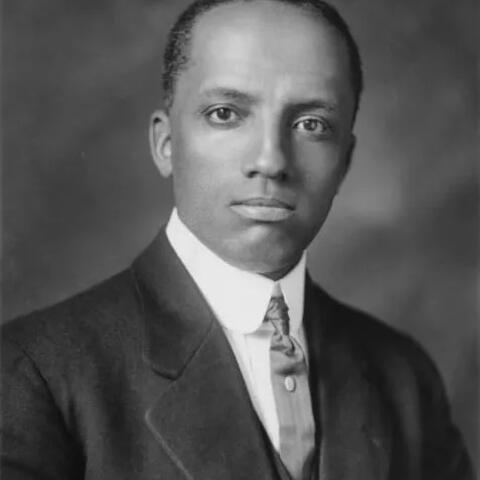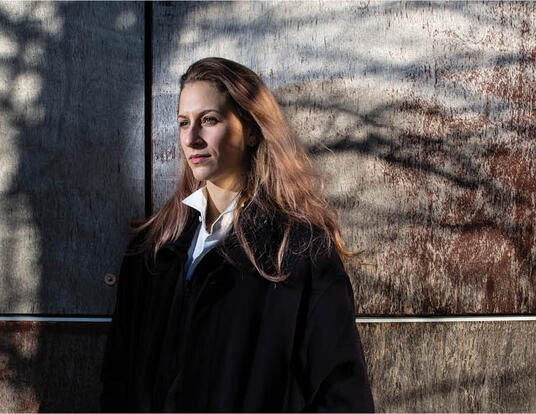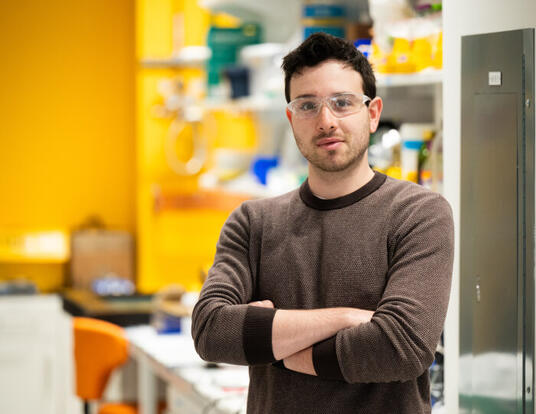Lorraine Daston: 2025 Centennial Medal Citation
Research at Risk: Since World War II, universities have worked with the federal government to create an innovation ecosystem that has yielded life-changing progress. Now much of that work may be halted as funding is withdrawn. Find out more about the threats to medical, engineering, and scientific research, as well as how Harvard is fighting to preserve this work—and the University's core values.
Among historians of science, Lorraine Daston is a paragon of excellence in leadership, scholarship, and collaboration. As a longstanding director of the Max Planck Institute for the History of Science in Berlin, Daston created optimal conditions for the field to flourish on the international stage. Her influence crosses disciplinary divides—spanning philosophy, sociology, literature, art history—but what truly sets Daston apart is her intellectual generosity and her keen ability to open new areas of inquiry, expanding and fundamentally changing the questions we ask about the history and philosophy of knowledge.
Daston was born in Michigan, spent her childhood up and down the East Coast—in Massachusetts, North Carolina, and Maryland—and was a member of the Class of 1973 at Radcliffe College, where she first encountered the history of science. She continued at Harvard for graduate study, completing her PhD in 1979 with a dissertation on the history of probability during the Enlightenment. She taught at Harvard, Princeton, Brandeis, the University of Göttingen, and the University of Chicago—where she continues to teach part time—before becoming one of the first directors of the Max Planck Institute for the History of Science in Berlin. There, for more than 25 years, Daston was a leader in setting the agenda for the field while experimenting with collective modes of scholarship and mentoring hundreds of students, visiting academics, and colleagues.
Peter Galison, AB ’77, AM ’77, PhD ’83, Joseph Pellegrino University Professor, has known Daston for 50 years—ever since she was the graduate student grader on his senior thesis at Harvard College. Together, Daston and Galison co-authored the 2007 book Objectivity, a magisterial work that unpacks the history of what it means to be scientifically objective, and which quickly became a mainstay in history of science curricula. “One of the things that has distinguished Raine’s career is that she never tries to get young people or her contemporaries to copy what she is doing,” Galison observes. “She always wants to see people succeed in advancing their own projects. She has helped hundreds of visiting scholars at the Max Planck Institute, from graduate students on up through leaders in their fields, realize their ambitions. She has a capacious mind, an endlessly inventive and ambitious way of working, and she’s as generous as the day is long.”
In her published works, Daston has delved deeply into the unexamined history of concepts that we might otherwise take for granted: including—in the past six years alone—Against Nature, on the human tendency to conflate natural order with moral order; Rules: A Short History of What We Live By, and Rivals: How Scientists Learned to Cooperate. She is the recipient of the Sarton Medal, the highest honor bestowed by the History of Science Society; the Heineken Prize, the Netherlands’ most prestigious international award; and the Gerda Henkel Prize, awarded every two years to a researcher of international acclaim, among many other accolades.
Katharine Park, AB ’72, PhD ’81, Samuel Zemurray, Jr. and Doris Zemurray Stone Radcliffe Research Professor of the History of Science, emerita—who met Daston when they were both undergraduates at Radcliffe—was with her in the early days of the Max Planck Institute, steps away from where the Berlin Wall had just come down, to work on their celebrated book Wonders and the Order of Nature. “We were feeling our way around post-war Berlin in the middle of the rubble of the wall,” Park recalls. “The Institute was being built from scratch, and it’s a huge tribute to Raine that it became such a phenomenal success.”
As a Max Planck Institute director, Daston routinely brought scholars together from all over the world to work on specific topics for two or three years at a time, resulting in acclaimed edited volumes that advanced our knowledge and understanding—a structure and approach unique among history of science institutes. “Through her own personal, intellectual gifts, Raine perfected this model of collaboration,” Park says. “She has a genius for improvisation, and an unbelievable range—chronological range, topical range—because she’s organized so many collaborative projects. Even for those of us who have been fairly productive, it’s hard to imagine how someone could ever amass the breadth of experience, knowledge, and skill that Raine has, through her constant openness to other methods, to other fields, to non-obvious collaborations that bring people together from very different specialties.”
Elizabeth Lunbeck, PhD ’84, chair of Harvard’s Department of the History of Science, co-edited with Daston one of the books to emerge from this collaborative process: Histories of Scientific Observation, published in 2011. “Raine has always been incredibly supportive of other scholars,” Lunbeck says. “She’s a rigorous thinker, a beautiful writer—always precise in conveying a thought, an idea, a concept—and she has remarkable skill in bringing people together. It’s always a delight to spend time with her, because she’s so interested in others. I think that comes through in the work: she has an appetite for experience, ideas, other people. She’s the most generous of scholars, and the most generative: just full of warmth and ideas and energy for productive talk, productive disagreement. She’s the real thing.”
Lorraine Daston, for your rich body of work, which deepens our understanding of the modes of thought and knowledge that shape our modern era, and for your impeccable leadership of your field—as a Max Planck Institute director and as an exemplary mentor, convener, and inspiration for countless other scholars—we are proud to award you the 2025 Centennial Medal.
Photos by Tony Rinaldo
Get the Latest Updates
Join Our Newsletter
Subscribe to Colloquy Podcast
Simplecast





